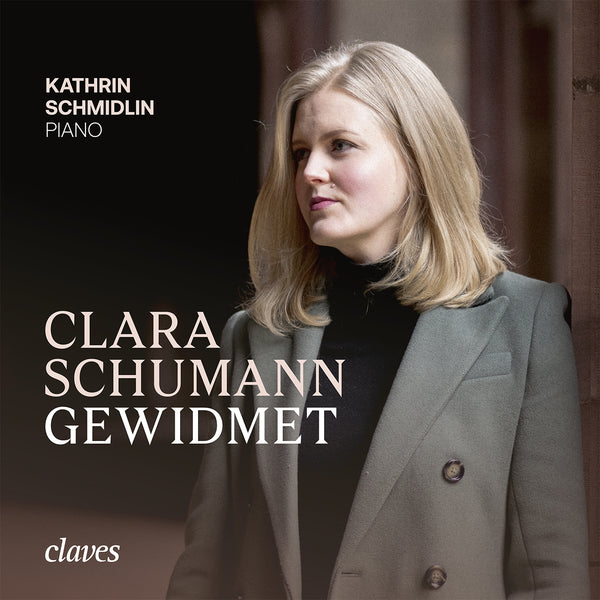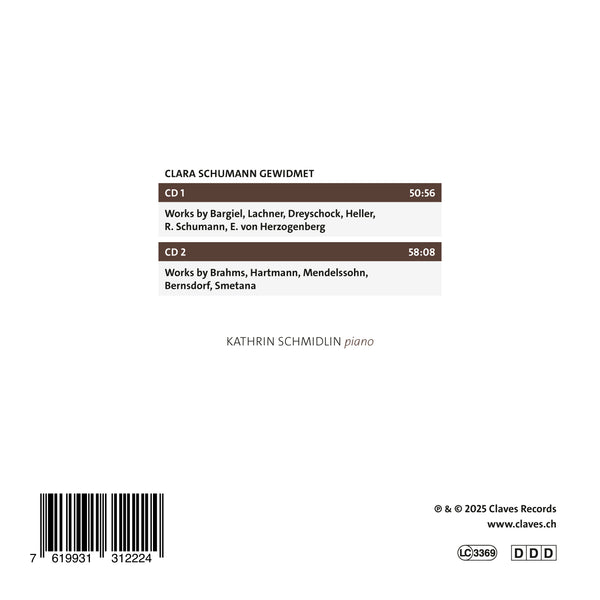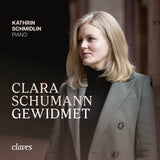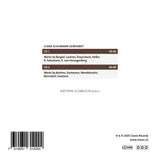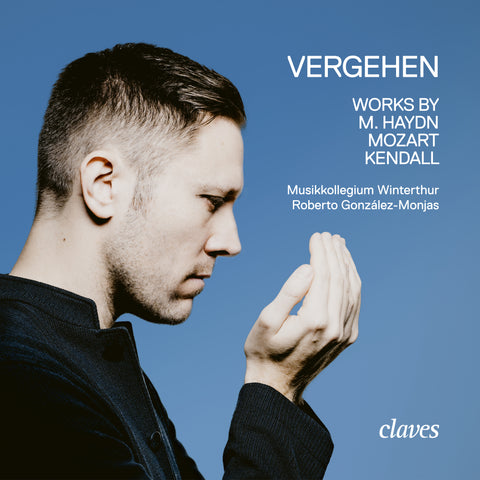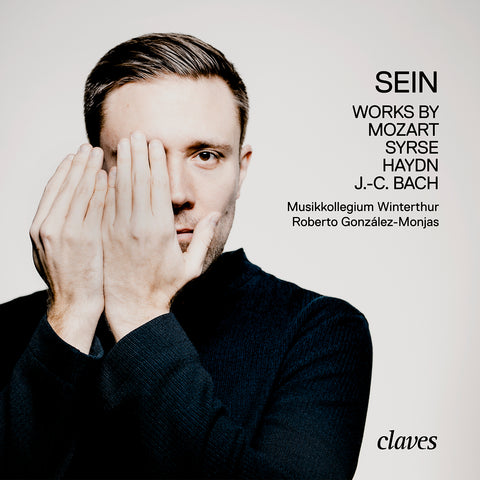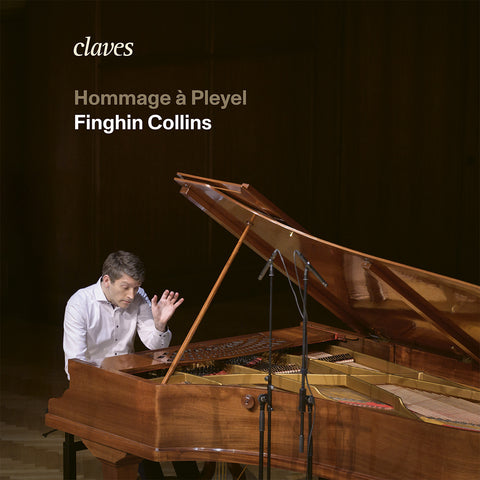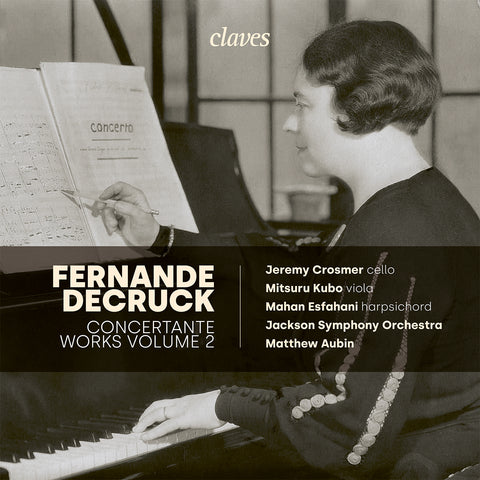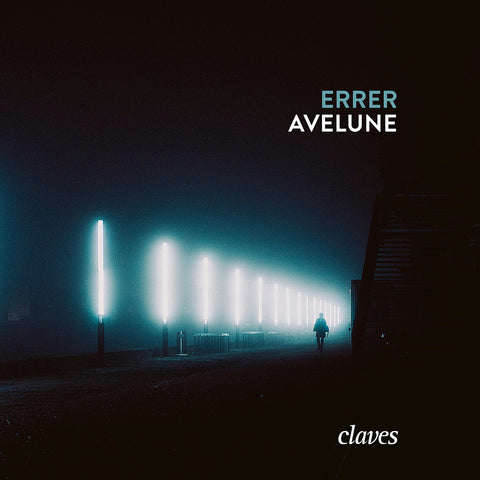(2025) Clara Schumann gewidmet
Category(ies): Piano Rarities
Instrument(s): Piano
Main Composer: Various composers (see collections)
CD set: 2
Catalog N°:
CD 3122/23
Release: 20.06.2025
EAN/UPC: 7619931312224
This album is now on repressing. Pre-order it at a special price now.
CHF 24.00
This album is no longer available on CD.
This album has not been released yet. Pre-order it from now.
CHF 24.00
This album is no longer available on CD.
CHF 24.00
VAT included for Switzerland & UE
Free shipping
This album is no longer available on CD.
VAT included for Switzerland & UE
Free shipping
This album is now on repressing. Pre-order it at a special price now.
CHF 24.00
This album is no longer available on CD.
This album has not been released yet.
Pre-order it at a special price now.
CHF 24.00
This album is no longer available on CD.
CHF 24.00
This album is no longer available on CD.
CLARA SCHUMANN GEWIDMET
DEDICATED TO CLARA SCHUMANN
Clara Schumann(-Wieck) (1819 Leipzig – 1896 Frankfurt am Main) was a widely travelled pianist – appointed as Imperial and Royal Chamber Virtuoso – composer, piano teacher, and editor; in this unique capacity, she embodied the most significant German female musician of the 19th century. Having begun her pianistic career as a child prodigy, Clara Josephine Wieck continued her path after marrying Robert Schumann in 1840. She subsequently appeared as a performer and composer under the name Clara Schumann, which is used in the following text.
With her virtuoso piano playing, the musician inspired around thirty composers to create works dedicated to her, although she incorporated only a few of them into her repertoire. She primarily championed the works of Bach, Beethoven, Robert Schumann, and Brahms; however, she regularly performed only a few piano pieces by her contemporaries Felix Mendelssohn Bartholdy and Stephen Heller in her concerts.
This selection introduces partially forgotten works by ten Romantic composers and one female composer from Denmark, Germany, Czechia, and Hungary. The diversity of forms is reflected in character pieces, dances, songs without words, variations, fantasy pieces, and sketches.
Woldemar Bargiel (1828 Berlin – 1897 Berlin), Clara Schumann’s maternal half-brother, provides a familial opening to this stylistically diverse double album. Bargiel studied at the Leipzig Conservatory under Ferdinand David, Niels W. Gade, and Ignaz Moscheles, later himself becoming a sought-after composition teacher. In addition to Leo Blech, his students at the Berlin Music Academy included the American Charles Martin Loeffler and the Swiss Paul Juon. The Drei Charakterstücke (Three Character Pieces) Op. 8 begin with a stormy pathos reminiscent of Robert Schumann as a model. The composer also dedicated the Fantasie Op. 5 and the Drei Fantasiestücke Op. 9 for piano to his half-sister Clara Schumann.
Vinzenz Lachner (1811 Rain am Lech – 1893 Karlsruhe) gained far greater recognition as a conductor than for his compositional work. He appeared at the renowned Kärntnertortheater in Vienna, the National Theatre in Mannheim, and in London. He was the teacher of the conductor Hermann Levi and bequeathed 65 compositions with opus numbers, primarily smaller pieces in various settings, along with an overture and a piano quintet. It is by no means surprising that Clara Schumann apparently appreciated Lachner, given the brilliance of the two pieces Impromptu and Tarantella op. 52, published in 1874.
Alexander Dreyschock (1818 Žáky near Kutná Hora – 1869 Venice) studied in Prague with Václav Jan Tomášek. He was the first pianist to perform piano pieces for the left hand, became a pianist at the Tsar’s court and was one of the most controversial musicians of his time. Felix Mendelssohn referred to him as a “Hannibal of octaves”, while Robert Schumann accused him of lacking talent and criticised his “poverty of imagination and melody.” Heinrich Heine, however, was impressed by the musician’s virtuosic octave playing: “He makes an infernal racket. One can’t believe to be hearing just one Dreyschock, but rather three choc pianists”, he said in 1843 after a concert. Clara Schumann believed Dreyschock played everything dreadfully; she was unlikely to have been enthusiastic about the Rhapsody ‘Zum Wintermärchen’ Op. 40 No. 4 (1847) – although she was the dedicatee – a piece enriched with chains of thirds and infused with Chopinesque charm.
Stephen Heller (1813 Budapest – 1888 Paris) was in contact with Berlioz, Chopin, and Liszt in the French capital and maintained a correspondence with Robert Schumann from 1835 onwards. The remark Schumann made in 1841 regarding Heller’s Etudes Op. 16 also applies to his other small-scale piano works: “Other more economical composers would have built entire concertos and sonatas from the basic ideas of these Etudes, but our composer here prefers only to hint and fleetingly inspire.” The Deux Tarantelles Op. 85, composed in 1855, contain, as Schumann noted in his review of the Sonata Op. 31, “so much ingenious blood that one could supply a considerable number of Parisian composers for quite a while.”
Robert Schumann (1810 Zwickau – 1856 Endenich) dedicated several works to his wife. These include the Exercises (Studies on a Theme by Beethoven (1831–1833), “dédiées à mon amie Clara Wieck” (Dedicated to my friend Clara Wieck), and the Piano Sonata in F-sharp minor Op. 11 (1833–1835), followed by “Myrthen”, the Liederkreis Op. 25 (1840) for voice and piano, and the Overture to Goethe’s Hermann und Dorothea Op. 136. Schumann composed the latter in 1851 in just five days. His final piano work, written a few weeks before his admission to the Endenich asylum in 1854, was also his last composition: Variations on a Theme. Haunted by visions and claiming to hear both “wonderful” and “horrific” music, along with angelic voices that gave him the theme in a chorale style, he named this work Ghost Variations. With its rough and knotted piano writing, this piece stands as his Opus Ultimum.
Elisabeth von Herzogenberg (1847 Paris – 1892 Sanremo) was the third child of German diplomat Bodo Albrecht von Stockhausen and Countess Clotilde von Baudissin. She married composer Heinrich von Herzogenberg, who lived mainly in Germany and Austria. Clara Schumann highly regarded her as a pianist. The Eight Piano Pieces, primarily composed in 1882, are among Elisabeth von Herzogenberg’s few surviving works. They were published by her husband shortly after her death, with dedications to friends. The lively eighth piece, in F-sharp minor, featuring a dance-like middle section, bears the inscription “Dedicated to Clara Schumann in Frankfurt” and appears here with its posthumous dedication as a curiosity.
Johannes Brahms (1833 Hamburg-1897 Vienna) first met Clara Schumann in Düsseldorf in 1853. Eight years later, she premiered his Variations and Fugue on a Theme by Handel Op 24 in Hamburg. She also vigorously advocated for further works by the composer with whom she was closely associated. After having already dedicated to Clara the Sonata in F-sharp minor Op. 2 and the Variations on a Theme by Robert Schumann Op. 9, Brahms dedicated to her the Gavotte in A major from Gluck’s opera Iphigénie en Aulide, partially notated on three staves. The piece was published in 1871 with the indication “Set for Clara Schumann by Johannes Brahms”; as an arrangement, it holds a unique position among dedications.
Johann Peter Emilius Hartmann (1805 Copenhagen - 1900 Copenhagen) came from a German musical family. He met Chopin and Rossini in Paris and maintained contacts with Felix Mendelssohn, Robert Schumann, and Brahms. He was an organist and director of the Copenhagen Music Conservatory and made a name for himself with operas, ballets, symphonies, violin sonatas, and extensive piano music. The Six Fantasy Pieces op. 54, stylistically in the line of Robert Schumann and dedicated to “Mrs. Dr. Clara Schumann”, were composed in 1855. They contain some astonishingly unusual expression markings such as “Canto marziale religioso” or “Andantino innocente quasi Allegretto”.
Felix Mendelssohn Bartholdy (1809 Hamburg - 1847 Leipzig) conducted the premiere of Clara Schumann’s Piano Concerto Op. 7 in 1835. Between 1842 and 1844, he composed his Songs Without Words op. 62; these six pieces include three of the most famous works in Clara Schumann’s repertoire: the Funeral March (No. 3), the Venetian Boat Song (No. 5), and the Spring Song (No. 6).
Eduard Bernsdorf (1825 Dessau - 1901 Leipzig) emerged as a composer, pianist, and music writer, although he bequeathed only a few piano solo pieces. As one of the leading critics of the Signale für die musikalische Welt – one of the most important music journals in the German-speaking world, founded in Berlin in 1843 – he reviewed both concerts and new publications. His unjustly forgotten Three Intermezzi. The Dragonflies Op. 10 testify not only to Bernsdorf’s high pianistic skill but also to his humour and a pronounced sense of sound.
Bedrich Smetana (1824 Litomyšl - 1884 Prague) studied initially to become a pianist. The author of the comic opera The Bartered Bride and the symphonic poems My Homeland bequeathed an extensive but to this day underestimated piano music oeuvre. After their acquaintance with Smetana in Prague (1847), Clara and Robert Schumann received so-called Album Leaves from op. 2 and 5, along with several of the Album Leaves begun in 1848. These were published in Prague in 1858 under Opus numbers 4 and 5 as “Sketches” with poetic titles.
On 18 May 1852, Clara Schumann wrote in a letter to Smetana, “I have looked through your Album Leaves with great interest and particularly like No. 7, 8, 9, 10, and 13. However, if I may be so bold as to draw your attention to something, it would be the pieces labelled ‘Romantic’, which least please me. I believe it would be better not to publish them, as they are too bizarre for both the listener and the performer to find any peaceful enjoyment. It seems to me incorrect to seek Romanticism in the bizarre.” The dedicatee concluded by thanking Smetana: “While expressing my friendly thanks for the dedication of one volume of your Album Leaves, I remain your devoted Clara Schumann.”
Further dedications to Clara Schumann of two- and four-hand piano works exist, among others, from Johann Carl Eschmann, Ferdinand Hiller, Heinrich Hofmann, Hans Huber, Theodor Kullak, Jean Louis Nicodé, Jacques Rosenhain, Anton Rubinstein, Ernst Rudorff, Wilhelm Taubert, and Rudolf Willmers.
Walter Labhart
Translation: Michelle Bulloch (Musitext)
KATHRIN SCHMIDLIN
Swiss pianist Kathrin Schmidlin specialises in works by female composers. In 2021, she released the album Frauenstimmen, followed by Opus 1 feminin in 2022, both with Claves Records. These recordings earned her international recognition: Frauenstimmen was included in New York classical radio station WQXR’s list of The Best Albums of the Month. Opus 1 feminin was named Album of the Week by MDR, among other accolades.
In 2017, Kathrin Schmidlin performed Fanny Hensel’s complete piano cycle Das Jahr at the Museum am Dom in Trier. In 2019, to mark the 200th birthday of Clara Schumann, she gave multiple performances of her Piano Concerto in A minor.
Her concert appearances have taken her to prestigious venues, including the Great Hall of the Ludwig Maximilian University in Munich, Paris, the Steingraeber & Sons piano factory in Bayreuth, the Forum of German Music Academies in Gladbeck, Theater Basel, Sils Maria, and the Menuhin Festival in Gstaad.
Kathrin Schmidlin studied with Karl-Andreas Kolly at the Zurich University of the Arts, Wolfgang Manz at the Nuremberg University of Music, and Tobias Schabenberger at the Basel Academy of Music. She has won multiple prizes in national and international competitions and was a scholarship holder at the Ansbach Bach Week. She received further artistic guidance from Henri Sigfridsson, Aleksandar Madžar, Brigitte Meyer, Konstantin Lifschitz and Hartmut Höll.
Beyond her artistic career, Kathrin Schmidlin maintains a diverse professional portfolio. She previously served on the board of the European Piano Teachers Association Switzerland and was a faculty member at the Zurich Conservatory Music School. Since 2023, she has led a piano class in the Basel region while also working as an external examiner at Swiss cantonal schools.
[Website]
REVIEWS
"Le romantisme, Kathrin Schmidlin l’a dans les doigts. Cette fois, une seule compositrice figure au programme de la Suissesse: Elisabeth von Herzogenberg (le No. 8 des Klavierstücke). Mais la pianiste dédie tout son nouveau, sensible et puissant récital à une femme, la virtuose allemande la plus importante du XIXe siècle: Clara Schumann. Les œuvres portent une dédicace à son nom. [..]" - Elisabeth Haas, Juin 2025
"[..] Her latest project, the double CD Clara Schumann gewidmet (Dedicated to Clara Schumann), offers a selection of mostly forgotten works by ten Romantic composers, including four female composers from Denmark, Germany, the Czech Republic, and Hungary. The diversity of forms is reflected in character pieces, dances, songs without words, variations, fantasies, and sketches. Kathrin Schmidlin has rightly set the bar high in terms of performance quality. Anyone who listens to her playing with an open mind is assured of many gems, including four world premieres! [..] - Aart van der Wal, September 2025
"Clara Wieck Schumann (1819 96) championed the piano works of her husband, Robert, and her close friend, Johannes Brahms, plus Bach, Beethoven and others. At the height of her fame her playing was hailed for its nobility and eloquence, her name invoked alongside those of Liszt and Thalberg. A greatly talented composer as well, she inspired about 30 fellow composers to dedicate works to her. Swiss pianist Kathrin Schmidlin offers a balanced conspectus of those compositions, featuring many partially forgotten and overlooked character pieces. [..]" - Stephen Cera, September 2025
"Hasta treinta compositores dedicaron obras a Clara Schumann. En este doble disco se recoge una muestra representativa de la énorme variedad estilística que eso implicó, tanto más si se añaden otras piezas no dedicadas pero sí vinculadas de algún modo a la pianista y compositora. [..] Kathrin Schmidlin toca cada una de ellas de manera impecable, expresiva pero certera, sin los afectismos forzados que Clara Schumann habría censurado." - Pablo del Pozo, octubre 2025
"Clara Schumann was among the foremost pianists of the 19th century and it is in this capacity that she achieved her fame though after her death it was her marriage to Robert Schumann that became the prime focus. The perspective of time has allowed for a reassessment of her role and she has taken up her rightful place as a giant of the 19th century, a virtuoso pianist of high standing, an imaginative composer who willingly sacrificed her talent in that regard to her for love of her husband, an editor and finally a mentor and teacher whose pupils include Leonard Borwick, Fanny Davies and Carl Friedberg. [..] I really enjoyed Ms Schmidlin’s previous release Opus 1 feminin (Claves 50-3051 review) and have found this collection just as engaging." - Rob Challinor, October 2025
"Excellente et admirable idée de programme ! À l’heure où l’on célèbre à satiété les compositrices les plus diverses, et, parmi elles, Clara Schumann (1819-1896), la compositrice virtuose allemande la plus importante du XIXe siècle, la pianiste helvétique Kathryn Schmidlin compose une anthologie judicieusement choisie et parfaitement stimulante, aussi bien intellectuellement qu’émotionnellement, en réunissant des œuvres comportant une dédicace au nom de Clara. Le spectre des compositeurs choisi est particulièrement large et permet de découvrir des pièces satisfaisant notre envie et notre curiosité de vivre un instant dans l’univers d’un XIXe siècle musical aboli dont l’histoire n’a retenu que quelques noms les plus prestigieux. [..]" - Jacques-Philippe Saint-Gerand, novembre 2025
DEDICATED TO CLARA SCHUMANN
Clara Schumann(-Wieck) (1819 Leipzig – 1896 Frankfurt am Main) was a widely travelled pianist – appointed as Imperial and Royal Chamber Virtuoso – composer, piano teacher, and editor; in this unique capacity, she embodied the most significant German female musician of the 19th century. Having begun her pianistic career as a child prodigy, Clara Josephine Wieck continued her path after marrying Robert Schumann in 1840. She subsequently appeared as a performer and composer under the name Clara Schumann, which is used in the following text.
With her virtuoso piano playing, the musician inspired around thirty composers to create works dedicated to her, although she incorporated only a few of them into her repertoire. She primarily championed the works of Bach, Beethoven, Robert Schumann, and Brahms; however, she regularly performed only a few piano pieces by her contemporaries Felix Mendelssohn Bartholdy and Stephen Heller in her concerts.
This selection introduces partially forgotten works by ten Romantic composers and one female composer from Denmark, Germany, Czechia, and Hungary. The diversity of forms is reflected in character pieces, dances, songs without words, variations, fantasy pieces, and sketches.
Woldemar Bargiel (1828 Berlin – 1897 Berlin), Clara Schumann’s maternal half-brother, provides a familial opening to this stylistically diverse double album. Bargiel studied at the Leipzig Conservatory under Ferdinand David, Niels W. Gade, and Ignaz Moscheles, later himself becoming a sought-after composition teacher. In addition to Leo Blech, his students at the Berlin Music Academy included the American Charles Martin Loeffler and the Swiss Paul Juon. The Drei Charakterstücke (Three Character Pieces) Op. 8 begin with a stormy pathos reminiscent of Robert Schumann as a model. The composer also dedicated the Fantasie Op. 5 and the Drei Fantasiestücke Op. 9 for piano to his half-sister Clara Schumann.
Vinzenz Lachner (1811 Rain am Lech – 1893 Karlsruhe) gained far greater recognition as a conductor than for his compositional work. He appeared at the renowned Kärntnertortheater in Vienna, the National Theatre in Mannheim, and in London. He was the teacher of the conductor Hermann Levi and bequeathed 65 compositions with opus numbers, primarily smaller pieces in various settings, along with an overture and a piano quintet. It is by no means surprising that Clara Schumann apparently appreciated Lachner, given the brilliance of the two pieces Impromptu and Tarantella op. 52, published in 1874.
Alexander Dreyschock (1818 Žáky near Kutná Hora – 1869 Venice) studied in Prague with Václav Jan Tomášek. He was the first pianist to perform piano pieces for the left hand, became a pianist at the Tsar’s court and was one of the most controversial musicians of his time. Felix Mendelssohn referred to him as a “Hannibal of octaves”, while Robert Schumann accused him of lacking talent and criticised his “poverty of imagination and melody.” Heinrich Heine, however, was impressed by the musician’s virtuosic octave playing: “He makes an infernal racket. One can’t believe to be hearing just one Dreyschock, but rather three choc pianists”, he said in 1843 after a concert. Clara Schumann believed Dreyschock played everything dreadfully; she was unlikely to have been enthusiastic about the Rhapsody ‘Zum Wintermärchen’ Op. 40 No. 4 (1847) – although she was the dedicatee – a piece enriched with chains of thirds and infused with Chopinesque charm.
Stephen Heller (1813 Budapest – 1888 Paris) was in contact with Berlioz, Chopin, and Liszt in the French capital and maintained a correspondence with Robert Schumann from 1835 onwards. The remark Schumann made in 1841 regarding Heller’s Etudes Op. 16 also applies to his other small-scale piano works: “Other more economical composers would have built entire concertos and sonatas from the basic ideas of these Etudes, but our composer here prefers only to hint and fleetingly inspire.” The Deux Tarantelles Op. 85, composed in 1855, contain, as Schumann noted in his review of the Sonata Op. 31, “so much ingenious blood that one could supply a considerable number of Parisian composers for quite a while.”
Robert Schumann (1810 Zwickau – 1856 Endenich) dedicated several works to his wife. These include the Exercises (Studies on a Theme by Beethoven (1831–1833), “dédiées à mon amie Clara Wieck” (Dedicated to my friend Clara Wieck), and the Piano Sonata in F-sharp minor Op. 11 (1833–1835), followed by “Myrthen”, the Liederkreis Op. 25 (1840) for voice and piano, and the Overture to Goethe’s Hermann und Dorothea Op. 136. Schumann composed the latter in 1851 in just five days. His final piano work, written a few weeks before his admission to the Endenich asylum in 1854, was also his last composition: Variations on a Theme. Haunted by visions and claiming to hear both “wonderful” and “horrific” music, along with angelic voices that gave him the theme in a chorale style, he named this work Ghost Variations. With its rough and knotted piano writing, this piece stands as his Opus Ultimum.
Elisabeth von Herzogenberg (1847 Paris – 1892 Sanremo) was the third child of German diplomat Bodo Albrecht von Stockhausen and Countess Clotilde von Baudissin. She married composer Heinrich von Herzogenberg, who lived mainly in Germany and Austria. Clara Schumann highly regarded her as a pianist. The Eight Piano Pieces, primarily composed in 1882, are among Elisabeth von Herzogenberg’s few surviving works. They were published by her husband shortly after her death, with dedications to friends. The lively eighth piece, in F-sharp minor, featuring a dance-like middle section, bears the inscription “Dedicated to Clara Schumann in Frankfurt” and appears here with its posthumous dedication as a curiosity.
Johannes Brahms (1833 Hamburg-1897 Vienna) first met Clara Schumann in Düsseldorf in 1853. Eight years later, she premiered his Variations and Fugue on a Theme by Handel Op 24 in Hamburg. She also vigorously advocated for further works by the composer with whom she was closely associated. After having already dedicated to Clara the Sonata in F-sharp minor Op. 2 and the Variations on a Theme by Robert Schumann Op. 9, Brahms dedicated to her the Gavotte in A major from Gluck’s opera Iphigénie en Aulide, partially notated on three staves. The piece was published in 1871 with the indication “Set for Clara Schumann by Johannes Brahms”; as an arrangement, it holds a unique position among dedications.
Johann Peter Emilius Hartmann (1805 Copenhagen - 1900 Copenhagen) came from a German musical family. He met Chopin and Rossini in Paris and maintained contacts with Felix Mendelssohn, Robert Schumann, and Brahms. He was an organist and director of the Copenhagen Music Conservatory and made a name for himself with operas, ballets, symphonies, violin sonatas, and extensive piano music. The Six Fantasy Pieces op. 54, stylistically in the line of Robert Schumann and dedicated to “Mrs. Dr. Clara Schumann”, were composed in 1855. They contain some astonishingly unusual expression markings such as “Canto marziale religioso” or “Andantino innocente quasi Allegretto”.
Felix Mendelssohn Bartholdy (1809 Hamburg - 1847 Leipzig) conducted the premiere of Clara Schumann’s Piano Concerto Op. 7 in 1835. Between 1842 and 1844, he composed his Songs Without Words op. 62; these six pieces include three of the most famous works in Clara Schumann’s repertoire: the Funeral March (No. 3), the Venetian Boat Song (No. 5), and the Spring Song (No. 6).
Eduard Bernsdorf (1825 Dessau - 1901 Leipzig) emerged as a composer, pianist, and music writer, although he bequeathed only a few piano solo pieces. As one of the leading critics of the Signale für die musikalische Welt – one of the most important music journals in the German-speaking world, founded in Berlin in 1843 – he reviewed both concerts and new publications. His unjustly forgotten Three Intermezzi. The Dragonflies Op. 10 testify not only to Bernsdorf’s high pianistic skill but also to his humour and a pronounced sense of sound.
Bedrich Smetana (1824 Litomyšl - 1884 Prague) studied initially to become a pianist. The author of the comic opera The Bartered Bride and the symphonic poems My Homeland bequeathed an extensive but to this day underestimated piano music oeuvre. After their acquaintance with Smetana in Prague (1847), Clara and Robert Schumann received so-called Album Leaves from op. 2 and 5, along with several of the Album Leaves begun in 1848. These were published in Prague in 1858 under Opus numbers 4 and 5 as “Sketches” with poetic titles.
On 18 May 1852, Clara Schumann wrote in a letter to Smetana, “I have looked through your Album Leaves with great interest and particularly like No. 7, 8, 9, 10, and 13. However, if I may be so bold as to draw your attention to something, it would be the pieces labelled ‘Romantic’, which least please me. I believe it would be better not to publish them, as they are too bizarre for both the listener and the performer to find any peaceful enjoyment. It seems to me incorrect to seek Romanticism in the bizarre.” The dedicatee concluded by thanking Smetana: “While expressing my friendly thanks for the dedication of one volume of your Album Leaves, I remain your devoted Clara Schumann.”
Further dedications to Clara Schumann of two- and four-hand piano works exist, among others, from Johann Carl Eschmann, Ferdinand Hiller, Heinrich Hofmann, Hans Huber, Theodor Kullak, Jean Louis Nicodé, Jacques Rosenhain, Anton Rubinstein, Ernst Rudorff, Wilhelm Taubert, and Rudolf Willmers.
Walter Labhart
Translation: Michelle Bulloch (Musitext)
KATHRIN SCHMIDLIN
Swiss pianist Kathrin Schmidlin specialises in works by female composers. In 2021, she released the album Frauenstimmen, followed by Opus 1 feminin in 2022, both with Claves Records. These recordings earned her international recognition: Frauenstimmen was included in New York classical radio station WQXR’s list of The Best Albums of the Month. Opus 1 feminin was named Album of the Week by MDR, among other accolades.
In 2017, Kathrin Schmidlin performed Fanny Hensel’s complete piano cycle Das Jahr at the Museum am Dom in Trier. In 2019, to mark the 200th birthday of Clara Schumann, she gave multiple performances of her Piano Concerto in A minor.
Her concert appearances have taken her to prestigious venues, including the Great Hall of the Ludwig Maximilian University in Munich, Paris, the Steingraeber & Sons piano factory in Bayreuth, the Forum of German Music Academies in Gladbeck, Theater Basel, Sils Maria, and the Menuhin Festival in Gstaad.
Kathrin Schmidlin studied with Karl-Andreas Kolly at the Zurich University of the Arts, Wolfgang Manz at the Nuremberg University of Music, and Tobias Schabenberger at the Basel Academy of Music. She has won multiple prizes in national and international competitions and was a scholarship holder at the Ansbach Bach Week. She received further artistic guidance from Henri Sigfridsson, Aleksandar Madžar, Brigitte Meyer, Konstantin Lifschitz and Hartmut Höll.
Beyond her artistic career, Kathrin Schmidlin maintains a diverse professional portfolio. She previously served on the board of the European Piano Teachers Association Switzerland and was a faculty member at the Zurich Conservatory Music School. Since 2023, she has led a piano class in the Basel region while also working as an external examiner at Swiss cantonal schools.
[Website]
REVIEWS
"Le romantisme, Kathrin Schmidlin l’a dans les doigts. Cette fois, une seule compositrice figure au programme de la Suissesse: Elisabeth von Herzogenberg (le No. 8 des Klavierstücke). Mais la pianiste dédie tout son nouveau, sensible et puissant récital à une femme, la virtuose allemande la plus importante du XIXe siècle: Clara Schumann. Les œuvres portent une dédicace à son nom. [..]" - Elisabeth Haas, Juin 2025
"[..] Her latest project, the double CD Clara Schumann gewidmet (Dedicated to Clara Schumann), offers a selection of mostly forgotten works by ten Romantic composers, including four female composers from Denmark, Germany, the Czech Republic, and Hungary. The diversity of forms is reflected in character pieces, dances, songs without words, variations, fantasies, and sketches. Kathrin Schmidlin has rightly set the bar high in terms of performance quality. Anyone who listens to her playing with an open mind is assured of many gems, including four world premieres! [..] - Aart van der Wal, September 2025
"Clara Wieck Schumann (1819 96) championed the piano works of her husband, Robert, and her close friend, Johannes Brahms, plus Bach, Beethoven and others. At the height of her fame her playing was hailed for its nobility and eloquence, her name invoked alongside those of Liszt and Thalberg. A greatly talented composer as well, she inspired about 30 fellow composers to dedicate works to her. Swiss pianist Kathrin Schmidlin offers a balanced conspectus of those compositions, featuring many partially forgotten and overlooked character pieces. [..]" - Stephen Cera, September 2025
"Hasta treinta compositores dedicaron obras a Clara Schumann. En este doble disco se recoge una muestra representativa de la énorme variedad estilística que eso implicó, tanto más si se añaden otras piezas no dedicadas pero sí vinculadas de algún modo a la pianista y compositora. [..] Kathrin Schmidlin toca cada una de ellas de manera impecable, expresiva pero certera, sin los afectismos forzados que Clara Schumann habría censurado." - Pablo del Pozo, octubre 2025
"Clara Schumann was among the foremost pianists of the 19th century and it is in this capacity that she achieved her fame though after her death it was her marriage to Robert Schumann that became the prime focus. The perspective of time has allowed for a reassessment of her role and she has taken up her rightful place as a giant of the 19th century, a virtuoso pianist of high standing, an imaginative composer who willingly sacrificed her talent in that regard to her for love of her husband, an editor and finally a mentor and teacher whose pupils include Leonard Borwick, Fanny Davies and Carl Friedberg. [..] I really enjoyed Ms Schmidlin’s previous release Opus 1 feminin (Claves 50-3051 review) and have found this collection just as engaging." - Rob Challinor, October 2025
"Excellente et admirable idée de programme ! À l’heure où l’on célèbre à satiété les compositrices les plus diverses, et, parmi elles, Clara Schumann (1819-1896), la compositrice virtuose allemande la plus importante du XIXe siècle, la pianiste helvétique Kathryn Schmidlin compose une anthologie judicieusement choisie et parfaitement stimulante, aussi bien intellectuellement qu’émotionnellement, en réunissant des œuvres comportant une dédicace au nom de Clara. Le spectre des compositeurs choisi est particulièrement large et permet de découvrir des pièces satisfaisant notre envie et notre curiosité de vivre un instant dans l’univers d’un XIXe siècle musical aboli dont l’histoire n’a retenu que quelques noms les plus prestigieux. [..]" - Jacques-Philippe Saint-Gerand, novembre 2025
Return to the album | Read the booklet | Composer(s): Various Composers | Main Artist: Kathrin Schmidlin




STUDIO MASTER (HIGH-RESOLUTION AUDIO)
Amethys Design
Bedrich Smetana (1824-1884)
Clara Schumann(-Wieck)
Eduard Bernsdorf (1825-1901)
Elisabeth von Herzogenberg (1847-1892)
Felix Mendelssohn (1809-1847)
High-resolution audio - Studio master quality
In stock
Johann Peter Emilius Hartmann (1805-1900)
Johannes Brahms (1833-1897)
Kathrin Schmidlin - piano
New releases
Piano
Rarities
Robert Schumann (1810-1856)
Stephen Heller (1813-1888)
Various composers
Vinzenz Lachner (1811-1893)
Woldemar Bargiel (1828-1897)
World Premiere Recording
Amethys Design
Bedrich Smetana (1824-1884)
Clara Schumann(-Wieck)
Eduard Bernsdorf (1825-1901)
Elisabeth von Herzogenberg (1847-1892)
Felix Mendelssohn (1809-1847)
High-resolution audio - Studio master quality
In stock
Johann Peter Emilius Hartmann (1805-1900)
Johannes Brahms (1833-1897)
Kathrin Schmidlin - piano
New releases
Piano
Rarities
Robert Schumann (1810-1856)
Stephen Heller (1813-1888)
Various composers
Vinzenz Lachner (1811-1893)
Woldemar Bargiel (1828-1897)
World Premiere Recording








